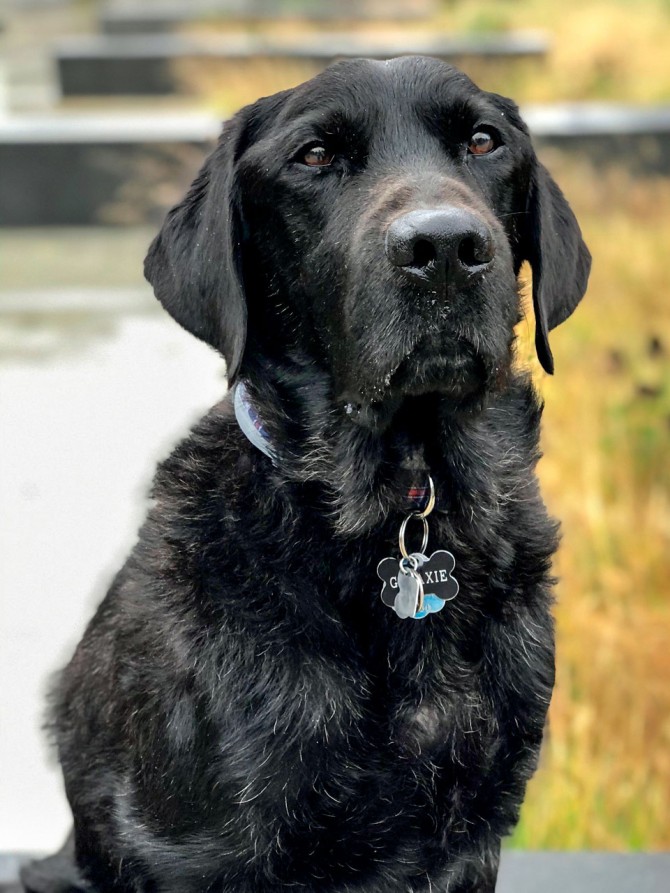When Lorna Welde's beloved black Lab, Galaxie, developed golf ball-size lumps all over his body literally overnight, she told her kids to set their alarms for 4 a.m. so they could get their pup to Cornell University Hospital for Animals (CUHA) - a 3 ½-hour drive from their home in Brewster, New York - first thing in the morning.
"I didn't even think about it twice," Welde said. "My first thought was, I'll take him to Cornell and, whatever it is, they'll have what we need to figure it out and treat him as quickly and completely as possible."
Galaxie had been treated at Cornell for GI problems in the past but this time, in July 2018, it was more serious. The veterinarians at CUHA diagnosed 5-year-old Galaxie with B-cell lymphoma, one of the most common types of cancer in dogs.
"The oncology team from moment number one was phenomenal in every way," Welde said. "They took him and kept him so that he could get chemo the following morning."
The typical survival time of dogs treated for lymphoma with chemotherapy is 10 to 12 months, and around 20% to 25% live for two years, said Cheryl Balkman, D.V.M. '98, section chief of oncology, who was Galaxie's main oncologist, along with associate professor Dr. Kelly Hume.
Galaxie, a black Lab diagnosed in 2018 with B-cell lymphoma, was treated at the Cornell University Hospital for Animals following a successful bone marrow transplant.
Welde and her kids (then in their 20s) started doing research and learned that it was possible for dogs with certain cancers to have bone marrow transplants, though it is a rare procedure. The family was encouraged by the fact that 60% of dogs who had received a transplant were still alive after two years.
Cornell does not perform bone marrow transplants, but the oncology team supported the family's decision to have the procedure done at a veterinary hospital in Bellingham, Washington, by Dr. Edmund Sullivan, considered a pioneer in bone marrow transplants in dogs.
A bone marrow transplant involves replacing the patient's cancerous bone marrow cells with healthy stem cells from a compatible donor, usually a relative. Fortunately, Welde was able to locate a match through the organization from which they adopted Galaxie.
In November 2018, Galaxie's immune cells were essentially wiped out via radiation and replaced with healthy stem cells from his half-brother, Edgar.
"The [cells] set up shop and they started multiplying," Welde said. "And by two weeks he was released from that hospital, and he had a whole new immune system cancer-free."
Galaxie became just the 25th family pet to undergo this type of bone marrow transplant.
In addition to putting Galaxie into remission with chemotherapy so he could undergo the transplant, CUHA handled all of Galaxie's post-transplant care.
"Dr. Balkman was the anchor for the whole process," Welde said. "One of the reasons why I felt like I could do this transplant is because I knew Cornell would have our back afterwards. They were his medical oncology home, and they still are."
Galaxie comes back to CUHA for periodic re-checks and is well known throughout the hospital. And Welde always brings green beans, Galaxie's favorite treat, for the staff to give him.
"Everybody's always happy to see him and he's always a pleasure to work with," Balkman said. "It is really nice to see him feeling well and looking good. He's just such a great dog. He's amazing."
Read the full story of Galaxie on the Cornell Veterinary Medicine website.
Christina Frank is a freelance writer for the College of Veterinary Medicine.







